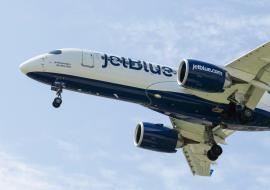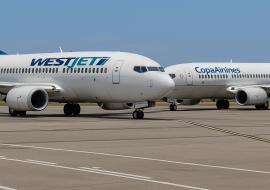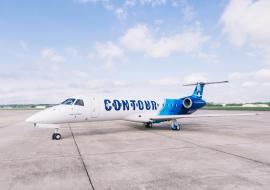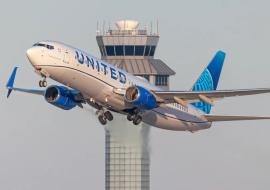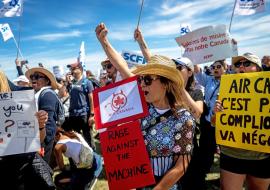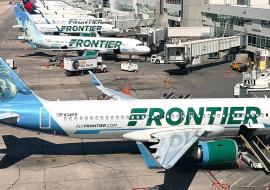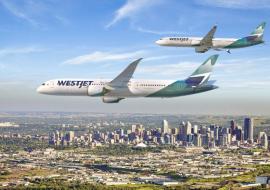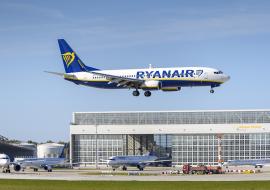Region Should List Aviation Services as Essential, LIAT Boss Says

The chief executive of the Antigua-based regional airline LIAT, is welcoming proposed amendments to the Antigua and Barbuda labor code, saying it will now take into account the "exigencies of industries such as aviation" that operate on a 24- hour basis.
Ian Brunton said that of all the players in the aviation industry, airlines sit right at the bottom of the "food chain", and in the case of Antigua and Barbuda, the current labour code makes it very difficult and costly to run an aviation enterprise.
"Very often we have seen where aviation carriers and the travelling public are arbitrarily held to ransom by employees exploiting certain provisions therein," he said.
"The Antigua and Barbuda labor code and proposed amendments seem to address the plight of employees working normal workday hours on a Monday-to-Friday basis but do not take into account the exigencies of industries such as aviation that have to operate 24 hours per day, seven days per week," Brunton said.
He said he now welcomes the proposed amendment to Clause C14 of the labour code regarding "removing the right for employees to refuse to work on public holidays for those workers who accept employment in an establishment/ enterprise which operates on public holidays".
Brunton said that if that amendment was not adopted in the labour code, airlines operating through Antigua would continue to be exposed to having their schedules compromised on any given public holiday by employees arbitrarily refusing to go to work.
"This is obviously an untenable situation and may prompt airlines to make changes which remove V.C. Bird International from their schedules on public holidays," he warned.
The LIAT senior official said that the aviation industry should also be classified as an essential service, with legislated restricted rights to strike.
Brunton said that tourism is the mainstay of the majority of the region's economies and air services connect the countries of the Caribbean.
"Further, all the institutions which help to forge the integration of the peoples of this region - the OECS, CARICOM, CSME, West Indies cricket, and many others - are dependent on aviation services for their proper functioning. Aviation in the Caribbean is the bridge that connects the islands," Brunton said.
"I, therefore, submit that aviation services should be treated in a different way to other industries and it is important that governments throughout the region act now to list aviation services as essential," he said. "I am careful to suggest that it is the services provided by the aviation industry that must be essential, rather than the industry within which it operates."
In pushing the case for the aviation sector to be considered an essential service, Brunton said stakeholders should consider a number of factors, including the possible consequences, "direct and indirect on regional economies, of the periodic interruption to the supply of those services as a result of industrial action" and "whether employees involved in the provision of air services are so highly skilled that other employees would be able to acquire those skills only after lengthy training and experience."
He added: "Given the strict security provisions involved in the provision of most aviation services, and that a large proportion of the functions rendered by aviation companies requires specialized employees, replacement labor may not be easily accessible, if at all."
Source: The Jamaica Gleaner







